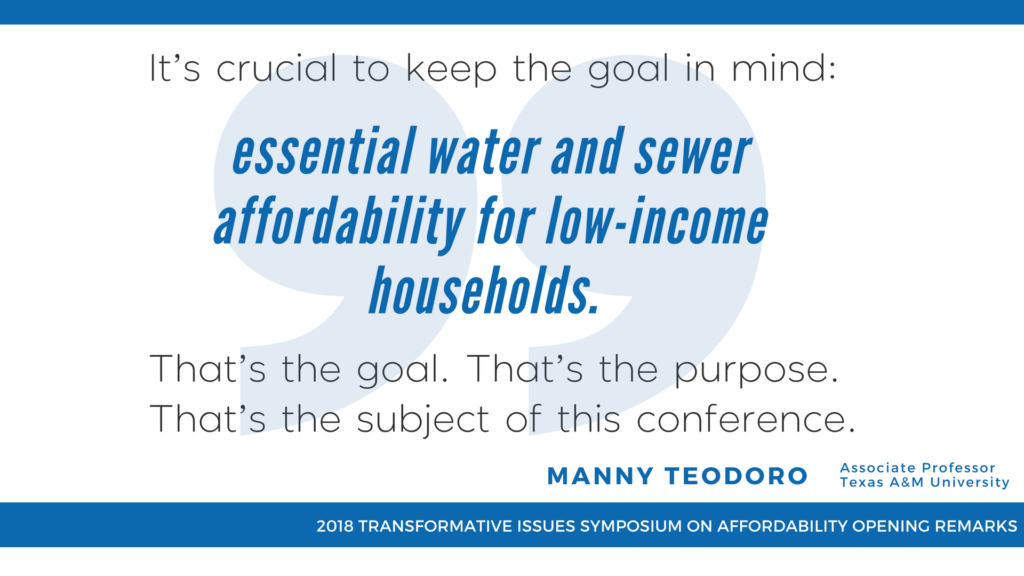On August 6-7, 2018, water industry leaders from across the country joined in Washington D.C. to discuss the issue of affordability. Why is this even a matter of discussion? Across the globe, water is declared a human right. Period. End of story, right? Not so fast. While the taglines hold truth, the process to make clean water possible is much more complicated.
RELATIONSHIP STATUS: IT’S COMPLICATED
Aging infrastructure, rising water bill costs, and high-profile crises have landed the water and wastewater industry in the national spotlight for the first time in decades. More people, albeit still not many, are paying more attention to the price tag on their water bills and the water coming out of the faucet. For far too many years, water and wastewater rates were kept low to the point that the industry is now playing catch-up. Rates are becoming a tug of war between the need to raise rates to fund infrastructure renewal and replacement projects and the need to refrain from pricing out segments of the population from these critical services.
Increasing rates in today’s economy has significant impacts on all water users, but particularly low-income customers. Many utilities are implementing affordability programs to mitigate the impact of rising rates. The challenge lies in funding vital infrastructure projects while keeping the public health needs of the end-users, the residents, at the forefront.
AFFORDABILITY: WHAT DOES IT REALLY MEAN?
Defining affordability is complex. Last month, WEF and AWWA hosted the inaugural 2018 Transformative Issues Symposium on Affordability. “What one community considers affordable may not be considered affordable elsewhere,” explained Manny Teodoro, associate professor at Texas A&M University and the opening keynote speaker at the symposium. “Affordability is a big, complex, multi-faceted problem that will require complex, multi-faceted solutions.”

For any water professional in the room wondering what the issue of affordability has to do with them, Teodoro had these words, “Communities are demanding solutions. Water and sewer utilities are public services, and the public demands service. If the public perceives an affordability problem and demands solutions, “it’s not our problem” is not going to be a satisfactory answer. Ultimately, the legitimacy of the water sector depends on the public trust. Dismissing the issue of affordability as outside our portfolio damages that legitimacy. A public that does not trust the water sector to provide for the most vulnerable will be understandably skeptical of our requests for resources and authority.”
HOW TECHNOLOGY FITS INTO THE CONVERSATION
At Master Meter, Inc., the technology—such as the Allegro advanced metering infrastructure—is buried beneath the ground. It’s our role to provide utilities with the most accurate data in order to make sound, informed decisions for proposed rate increases however, it doesn’t stop there. Equipping residents with their usage data via online portal software, like Harmony, allows them to budget appropriately. Technology empowers customers with the information to make better financial decisions for themselves and their household. The value and valuation of water is a shared responsibility.
Customer portals also simplify your communication efforts and provide greater accessibility to local affordability programs. An automated means of disseminating information paired with traditional outreach methods can significantly increase program enrollment.
NEXT STEPS
Affordability is bringing tough conversations to the forefront of the water sector that raises water’s own version of the chicken or the egg question. When it comes to water, what matters most? The work or the work that matters? Work is the job. Work that matters makes a difference. As an industry, it will take all hands on deck to solve the many challenges ahead. We look forward to partnering with our customers to do the work that matters.

